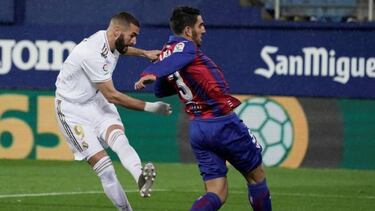Green grows the grass in LaLiga
The recent rain in Spain has been ferocious for the time of year and looking at the pitches around the country calls into question that old ...
The recent rain in Spain has been ferocious for the time of year and looking at the pitches around the country calls into question that old adage that any time in the past was necessarily better, at least where football is concerned. When it rains like this, not so long ago football pitches were practically unplayable. Games were ugly and hard work, the players’ legs were put through the grinder and the results were often left to the hands of chance. The ball had to be moved around with the tip of the boot and the players would end up so caked in mud that it was hard to tell the two sides apart. Those whose kits remained pristine were frowned upon, because they were considered unwilling to roll up their sleeves and get stuck in like their teammates.
Related stories
It wasn’t that long ago that games like that were played out, for example, in Ipurua, when Eibar were in the second division, and broadcast on cable television. Just a couple of weeks ago, Real Madrid visited Ipurua in the pouring rain and the turf was immaculate. As it was in Mendizorrotza more recently. As all pitches are everywhere, generally speaking. This lends itself to an attractive and exportable television product. LaLiga introduced a system of fines for clubs whose pitches were in poor repair and that resulted in the implication of systems to combat heavy rain. A layer of topsoil underneath the turf, with a layer of gravel beneath that for filtration, then stone and a network of pipes half a metre down to funnel away water.
Grass is greener on the other side of Liga action

An operation like that costs in the region of 700,000 euros. And then clubs also started to employ specialist groundsmen, such as the Scotsman who tends the turf at Mendizorrotza, who is also a bagpipe player and performed at the wedding of Seve Ballesteros. Lights are used to keep the grass in perfect trim and the length of the blades is regulated. The days when tricks like watering pitches in the north or leaving them to parch in the sun in the south – or leaving the grass long to combat Barcelona’s tiki-taka – are long gone. Spanish football has refined itself through the rules and regulations imposed by LaLiga chief Javier Tebas, many of whose reforms are to be applauded. Heavy rain still breathes life into the Spanish countryside, fills the reservoirs and occasionally causes undesirable floods. What it no longer does is turn football pitches into quagmires.
